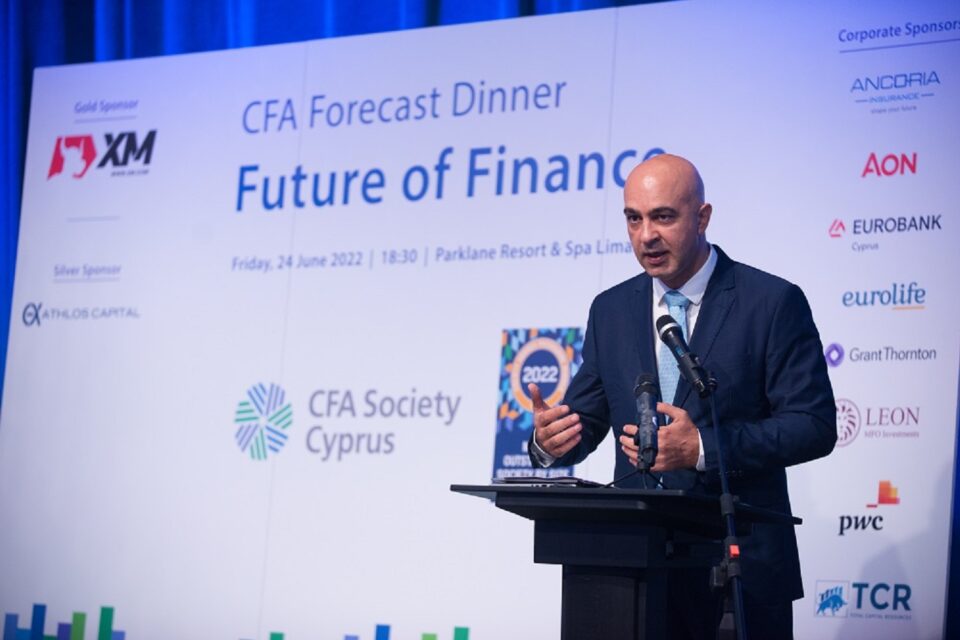The Chairman of the Cyprus Securities and Exchange Commission (CySEC) George Theocharides this week released a missive on investor education on the risks of crypto asset investment in Cyprus.
Theocharides stated that investor interest in crypto-assets across the globe is on the rise and their inherent risks, along with a lack of proper information and online hype, can lead to material losses for investors.
“Thus, it is imperative that investors and the public at large are informed and educated about the risks involved in investments in crypto assets,” Theocharides said, noting that appropriate educational messages about the risks and attributes of crypto assets must be effectively communicated to primarily protect retail investors.
“The rapid growth of the crypto-asset markets and the eco-systems that support them pose new challenges and risks for all regulating bodies across the world,” he added.

The CySEC chairman explained that while technological innovation offers many promising possibilities, including improved access to financial services, the immaturity of the ecosystem and the assets themselves “could inhibit the cultivation of trust in the sector”.
Theocharides also provided an overview of crypto assets for any newcomers to this particular investment field. Crypto assets, he explained, are often sold or auctioned in what is called an Initial Coin Offering (ICO). Moreover, crypto assets in ICOs are referred to as tokens, thus ICOs are in some cases referred to as Token Generating Events (TGEs).
“Similarly, to Initial Public Offers (IPOs), the primary intention of ICOs is to raise funds from third parties to finance an idea or business model, by offering private investors the opportunity to invest in it,” Theocharides said.
“ICOs often contain a so-called “white paper” which can be viewed as a summary of the key characteristics of the planned project, but they usually do not offer the same guidelines and particulars that are provided in regulated securities prospectuses, allowing far less transparency and possible confusion of the public in relation to the risks associated with the investment,” he added.
Theocharides also noted that investors must be aware that investment in crypto assets also involves liquidity risks, volatility risks, cyber-risks, the potential of fraud, as well as other dangers.
Liquidity risk refers to the impaired ability to sell crypto assets when one wishes to by exchanging them with money and without losing money in the process.
“Many crypto-assets have no tangible value – contrary to traditional securities, such as stocks or bonds, resulting in their value and price depending exclusively on supply and demand which in most crypto-assets can be highly speculative,” Theocharides said.
“This may lead to high volatility of prices and investors suffering large losses,” he added.
Furthermore, the commission chairman warned that aggressive marketing campaigns employed through online media, social media channels and celebrity endorsements or influencers, can often be aimed at less sophisticated and inexperienced retail investors with a low-risk tolerance.

He noted that it is not easy for the public to understand the various different functions and characteristics of each crypto asset, especially due to insufficient or inaccurate information and risk disclosures, highly technical language of documentation, and the promotion of increasingly complex products by crypto firms.
“Crypto-assets can be said to be a truly global market without national or jurisdictional borders, and since there is currently no comprehensive regulation for crypto-assets at the national or international level, in many jurisdictions, crypto-assets are not regulated by the existing regulations,” Theocharides stated.
“As a result, there is no coverage for investors by the usual redress systems or deposit protection schemes in the event of the financial insolvency of a custodian wallet provider,” he added, noting that making a successful claim against the crypto-asset issuer, wallet provider or intermediary, may prove difficult, “leaving crypto-asset owners exposed also to counterparty risk”.
Theocharides subsequently highlighted the urgent need for an EU-wide regulation, adding that the proposed EU Regulation on Markets in Crypto-Assets (MiCA) will set regulatory requirements for the public offer and marketing of crypto-assets and the provision of services related to them, as well as include provisions to prevent market abuse involving crypto-assets.
“MiCA aims to bring crypto-assets, crypto-assets issuers and crypto-asset service providers under a common regulatory framework, to protect investors and preserve financial stability, while allowing and fostering innovation in the crypto-asset sector,” he said.
Meanwhile, Maryna Chernenko, Managing Director of UFG Capital said that “The rapid growth of investor interest in crypto-assets across the globe, along with inherent lack of proper information and the online hype, can lead to material losses for investors”.
“Thus, we agree with George Theocharides, Chairman of the Cyprus Securities and Exchange Commission (CySEC), that investors should be aware of the risk involved in their investments,” she added.
Moreover, Chernenko said that the company fully supports CySEC’s steps in improving financial literacy among investors, especially education on the risks of crypto-asset investment.
Additionally, the company said that engaging with alternative investment funds (AIFs) specialising in crypto assets by AIF managers should become a specific investment strategy.
“According to Advice to the European Union (EU) Institutions published by The European Securities and Markets Authority (ESMA) – crypto-assets qualify as financial instruments. Therefore, the Alternative Investment Fund Managers Directive (AIFMD) does not provide for a list of eligible or non-eligible assets (including crypto assets) and AIFs may in fact invest in any traditional or alternative assets as long as the AIFM can ensure compliance with the AIFMD,” she explained.
“In our opinion, for AIFM, to manage crypto investment funds extension of a license will be required. We hope for further establishment of a regulatory framework for current participants of the fund industry and new ones coming to Cyprus,” Chernenko concluded.







Click here to change your cookie preferences